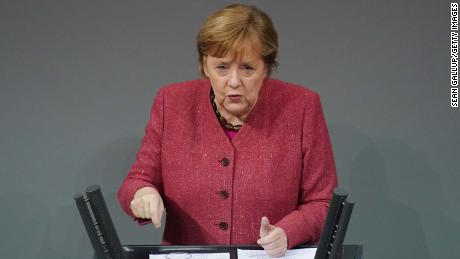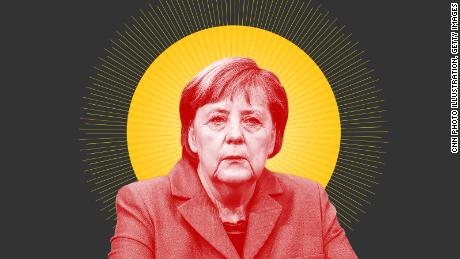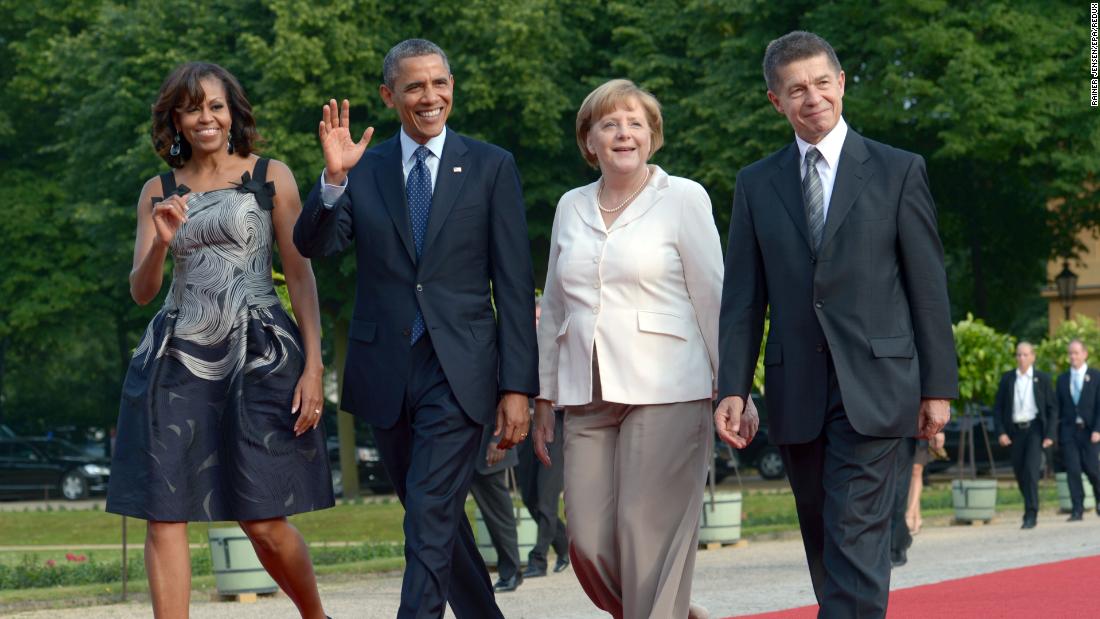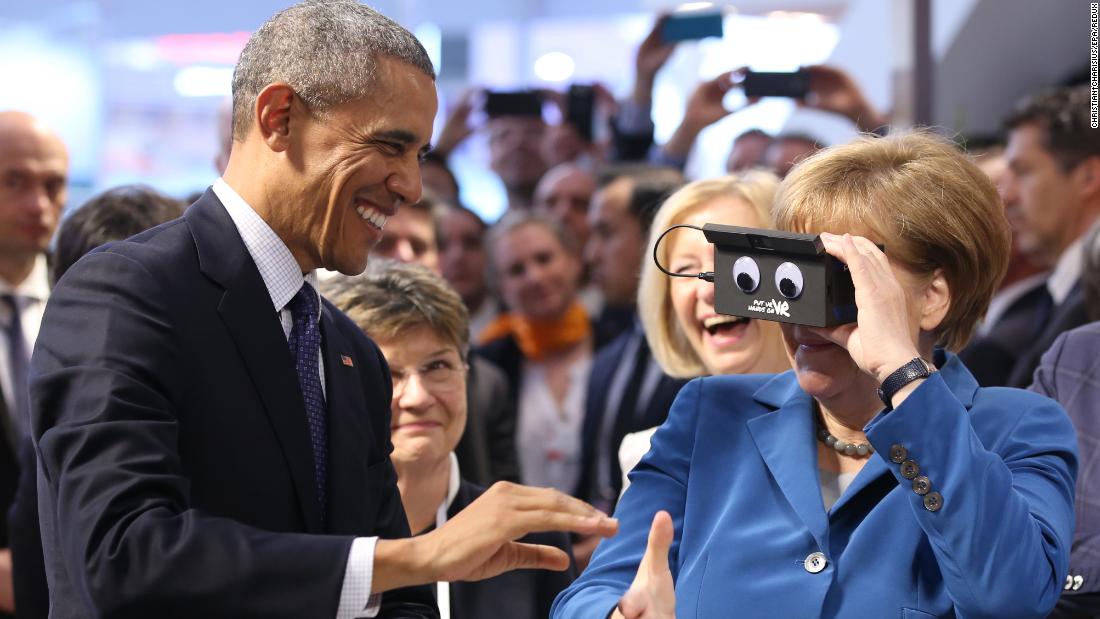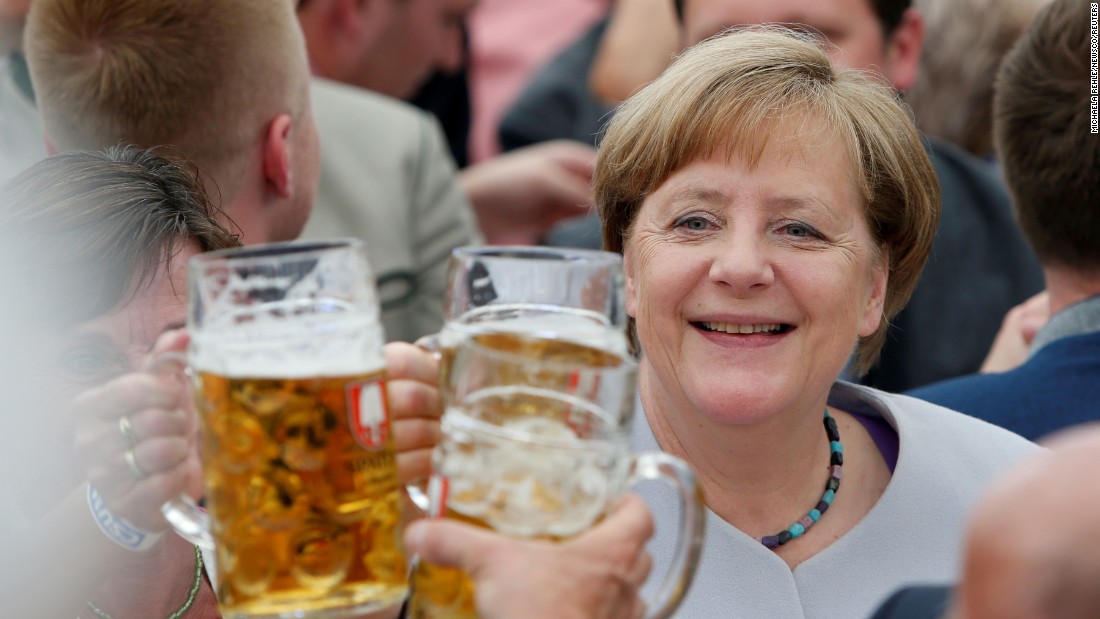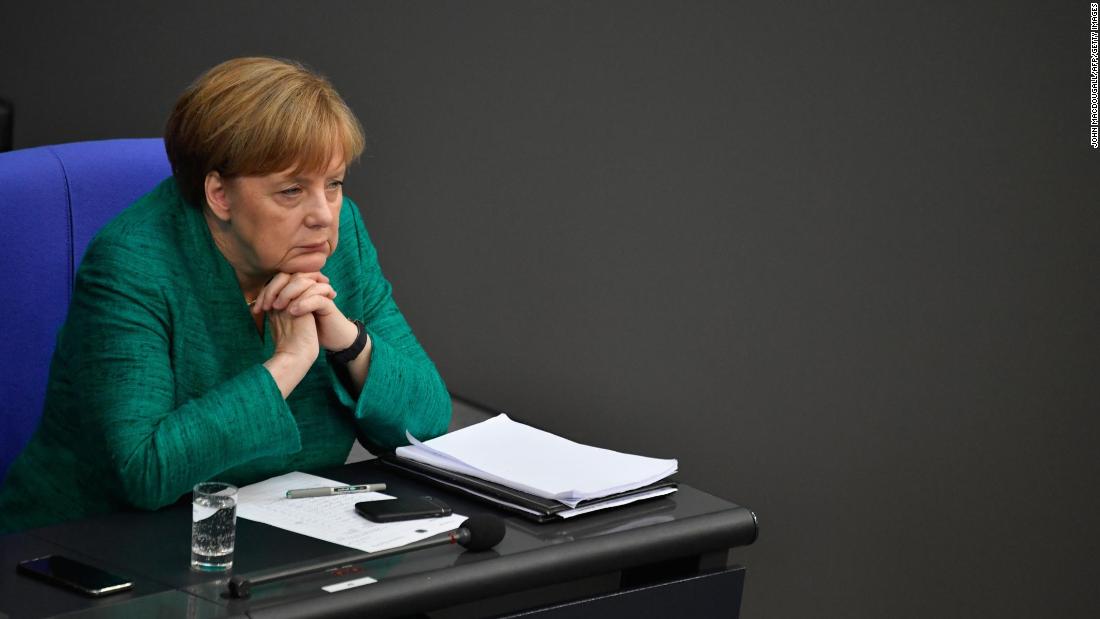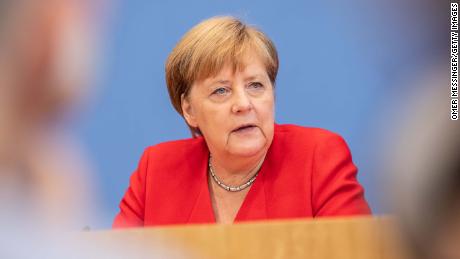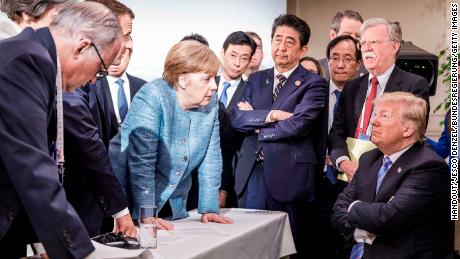Merkel: You can't fight the pandemic with lies
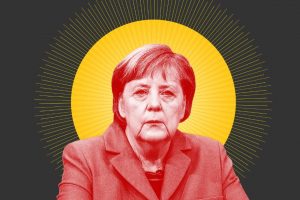
(CNN)It’s a lesson many politicians — mostly male — have learned the hard way over the past 15 years: never underestimate Angela Merkel.
The German Chancellor is preparing to step down later this year, having long ago cemented her position as one of the world’s most successful political leaders.
In her time in office, she has dealt with five UK prime ministers, four French presidents and seven Italian prime ministers. When President-elect Joe Biden takes office on Wednesday, he’ll be the fourth American commander-in-chief she’s worked with.
Yet despite her track record, Merkel, the leader of the world’s fourth-biggest economy, has spent much of her political career having to prove herself.
Her counterparts have tried to overpower or even humiliate her. Vladimir Putin once brought a Labrador dog into his meeting with the Chancellor who is famously afraid of dogs. Donald Trump told her she was stupid. Silvio Berlusconi once left her waiting for 15 minutes while he chatted on the phone.
When she became the first woman to take Germany’s top job in 2005, many deemed her too inexperienced and uncharismatic to last.
Bild, Germany’s most-read newspaper, marked the occasion with a front-page photo and a headline reading “Miss Germany!” Even within her own party, she was referred to as “das Mädchen,” German for “the girl.”
But while other leaders have come and gone over the intervening years, Merkel has endured, enjoying an unparalleled popularity. “Das Mädchen” became nicknamed “die Mutti,” a mother figure and symbol of stability.
Political scientist Joyce Mushaben, said Merkel was seen as a “temporary” leader when she first rose through the ranks of the Christian Democratic Union (CDU) party.
Many of her male rivals had been mired in scandal, and there was a feeling that “she was just going to be holding that place until they could find a real CDU man to replace her,” Mushaben said. “They completely underestimated her learning ability.”
Merkel ended up leading the party for 18 years, stepping down in late 2018. It soon became clear just how difficult it will be to replace her. Merkel’s handpicked successor Annegret Kramp-Karrenbauer lasted just over a year, struggling to keep the regional fractions of the party in line.
This weekend, the party picked Armin Laschet as her successor. Laschet, a long time Merkel ally currently serving as the Minister-president of the federal state of North-Rhine Westphalia, won with 52.79% (521 votes), beating Friedrich Merz, a corporate lawyer, who obtained 47.21% (466 votes).
Laschet will lead the party into the federal election in September. His election was a clear vote in favor of the continuation of Merkel’s moderate politics.
Mushaben, a Merkel biographer and professor of comparative politics and gender studies at the University of Missouri-St. Louis, said the key to Merkel’s success lay in the unique mix of her background and her abilities.
Her experience of growing up as a pastor’s daughter in Communist East Germany has deeply influenced her political decision-making, and as a former scientist with a doctorate in quantum chemistry, she often approaches problems in the same way as complex calculations, Mushaben said.
When her political mentor Helmut Kohl became tangled in a corruption scandal in 1999, she publicly denounced him and called for him to go, despite having been his long-time protege.
“People saw her as a person of integrity, someone who didn’t just grab the mic and shoot off her mouth, but someone who waited until she really had something to say,” Mushaben added.
As well as being the first woman to become chancellor, Merkel was also the first politician from the former East Germany to take the post following the fall of the Berlin Wall.
Merkel referenced this part of her background recently, when pushing for more coronavirus restrictions, admitting that as someone who sees the freedom to travel as a hard-won right, she was uneasy about the new rules, but explained why they were necessary.
Corinna Hoerst, senior fellow and deputy director at the German Marshall Fund in Brussels, said Merkel has been a new type of leader.
“She exudes empathy, stability and reliability,” Hoerst said. “That’s unique and it has redefined, in some ways, what people are looking for in a leader, because it’s so opposed to any of the sort of male stereotypes that we had.”
The world’s crisis manager
Even her staunchest critics admit that Merkel has special powers when it comes to handling crises, having seen Germany through the global financial crisis, the Eurozone debt crisis, and the immigration crisis; with months to go before she steps down, she remains at the forefront of the fight against the coronavirus pandemic.
She has often acted as the voice of reason, and as a maker of deals. Political scientists describe her as “calm,” “pragmatic,” and “diplomatic.” Some might even add “boring” to the mix.
“There’s nothing glamorous about her,” said Gabriele Abels, a professor of comparative politics at the University of Tübingen, Germany. “She is very … matter of fact, very rational and people would never think of her as being corrupt.”
Abels said Merkel embodies what most Germans look for in a leader: “While we sometimes look at other countries which have more of the charismatic leaders, we don’t want these for ourselves, we’ve had enough of that in history.”
Hoerst said Merkel’s particular strength in recent years has been in building consensus and leading from the middle.
“It’s kind of funny that women are seen as, you know, ‘Oh, she’s so emotional,’ but actually, it has been the men who are highly emotional, whether it’s Boris Johnson or President Trump, while Chancellor Merkel has been diplomatic and determined not just to forge ahead but to get everybody around the idea,” she said.
Merkel’s determination to find an agreement has paid off during some of the biggest crises of the past decade. She was able to broker a deal between the Eurozone and Greece, and convinced Russia and Ukraine’s top officials to talk to one another.
As a former scientist and environmental minister, she also put climate center from the beginning of her leadership. She presided over the very first UN Climate Conference in Berlin and convinced the other leaders of G8 to accept the need to cut greenhouse gas emissions. “She even got George Bush to admit that there was a climate change problem; she was a great mediator,” Mushaben said.
But the leading by consensus hasn’t always worked. Late last year, she struggled to convince the leaders of Germany’s federal states to implement stricter nationwide coronavirus restrictions when infection levels began to rise. And as the rotating President of the Council of the European Union in the past six months, she has struggled to find a consensus with Hungary and Poland over their adherence to the EU’s rule of law.
‘We can manage this’
There were also times when Merkel didn’t go looking for a compromise, most notably in 2015 when she welcomed refugees fleeing conflicts in Syria and elsewhere.
“Politically persecuted people have the right to asylum. We can be proud of the humanity of our Basic Law … we also grant protection to all those who flee to us from wars,” she told the German people that summer.
“I put it simply: Germany is a strong country. The motive with which we approach these things must be: We have achieved so much — we can do it!,” Merkel said.
“To me that’s her most memorable moment, that three-week period in 2015 where she made the decision to fight all the people in her cabinet and the chief for the federal police and the border guards, they all said don’t do it and she said, ‘If we can save the banks, we can save the human beings,'” Mushaben said.
Hoerst agrees that that decision will form a major part of Merkel’s legacy.
“It was a humanistic thing to do and it was the right thing to do,” she said. “She empowered German citizens who felt empathy for refugees but maybe haven’t been active, and she gave them the recognition and the support so that locally they organized and opened their houses.”
Many criticized the move, particularly after an estimated 1.2 million people arrived in Germany within the next year and half.
The large influx initially caused some problems, and boosted far-right anti-immigration parties such as the Alternative für Deutschland (AfD). But that sentiment appears to have been temporary — the AfD has since faded in the polls, and the policy of welcoming in refugees and migrants is starting to pay off economically.
Like many other European countries, Germany is facing a demographic time bomb, with too many retirees and not enough workers.
According to Germany’s Institute for Labor Market and Occupational Research, 49% of the working-age refugees who have arrived in the country since 2013 were employed as of February last year. More than half of those were in skilled jobs and more than two-thirds were in full-time work.
Another 17% were in paid training programs and 3% were in paid internships. According to the research, most of the remaining were either studying, actively looking for jobs or on maternity or parental leave. Some 85% have taken German language courses.
What’s next?
Merkel has repeatedly rejected the idea of running for a fifth term and most commentators believe she will stick to that promise.
“Even her decision to run for the fourth term was very hesitant, but she saw Putin behaving badly and she saw the election of Trump and she said, ‘Okay, I’m the only grown up left on the stage,'” Mushaben said.
This time around, Merkel appears determined to step back.
“I don’t think she will take up any other position, I think that she will actually retire and just enjoy doing the things she has hardly been able to do in the last 20, 30 years,” Abels said.
According to Mushaben, the outgoing Chancellor has previously said that she is looking forward to spending more time cooking plum cake and her famous potato soup, indicating she isn’t planning a big speaking tour or another position.
But even if she retires completely, she will continue to influence the world for a long time to come.
“In the future, it will be very difficult to argue that a woman cannot be a successful leader, and that’s a very important message to tell,” Abels said.
Source: Read Full Article


